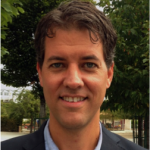Link to Pubmed [PMID] – 16918255
Expert Opin Biol Ther 2006 Sep;6(9):879-90
In the adult mammalian brain, new neurons are continuously generated from a proliferating population of neural progenitor/stem cells and become incorporated into the existing neuronal circuitry via a process termed adult neurogenesis. The existence of active functional adult neurogenesis raises the exciting possibility that manipulating endogenous neural progenitors, or transplanting the progeny of exogenously expanded neural progenitors, may lead to successful cell replacement therapies for various degenerative neurological diseases. Significant effort is being made to decipher the mechanisms regulating adult neurogenesis, which may allow us to translate this endogenous neuronal replacement system into therapeutic interventions for neurodegenerative diseases. This review focuses on adult neurogenesis as a strategy to derive potential therapies, and discusses future directions in the field.

